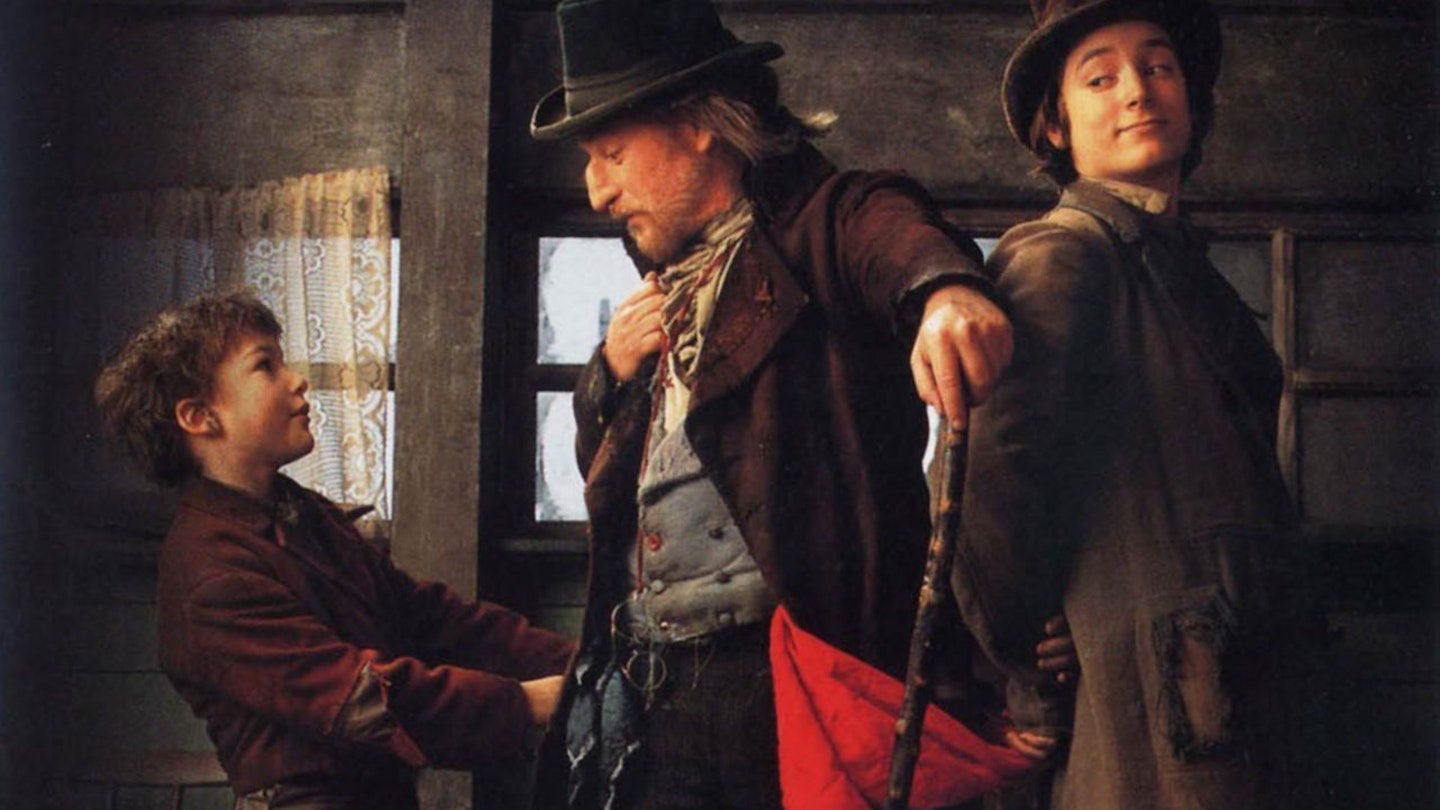Such was the furore created by Alec Guinness's appearance as Fagin that the quality of David Lean's adaptation of Charles Dickens's second novel was somewhat overlooked. Despite the fact that he had drawn on both Cruikshank's original engravings and the author's cutting irony, Guinness's characterisation (complete with a hooked nose and lisping delivery) was deemed insensitively anti-Semitic with the Holocaust still agonisingly fresh in the memory. There were riots at the film's Berlin premiere and it was banned in America for two years, until a sanitised version was finally released. Indeed, the picture was only shown Stateside in its unexpurgated form in 1970, prompting some to suggest that Hollywood had finally wreaked its revenge on the British film industry for refusing to pass Frank Lloyd's 1922 take on the story, which had starred Lon Chaney as Fagin, lest it encouraged hooliganism.
Judiciously trimming the text to its essentials, Lean assembled an able cast around John Howard Davies (who would go on to produce Monty Python's Flying Circus and Fawlty Towers) and was particularly well served by Robert Newton as Sikes and Kay Walsh as his golden-hearted doxy, Nancy. Moreover, he evocatively recreated the shameful squalor of Victorian London, thanks to Guy Green's cinematography and John Bryan's oppressive sets, whose slums, back alleys and spartan interiors captured the grim realities of urban poverty with an unrivalled fidelity.
But, Lean seemed bent on surpassing his achievement with Great Expectations. Consequently, everything was a little more meticulous, literate and self-consciously stylised. He even took the liberty of inventing the entire six-minute opening sequence, in which Oliver's mother struggles across moorland during a storm to arrive at the workhouse in time for his birth. It was a spectacularly cinematic conceit, but it set a tone of expressionist melodrama that became more pronouced as the scene shifted to the capital.
However, when Lean does subjugate his ego to Dickens's genius, this becomes a powerful study of depravity, misery and cruelty, whose controversies (some have also suggested that Fagin has paedophilic tendencies) make it all the more compelling.
